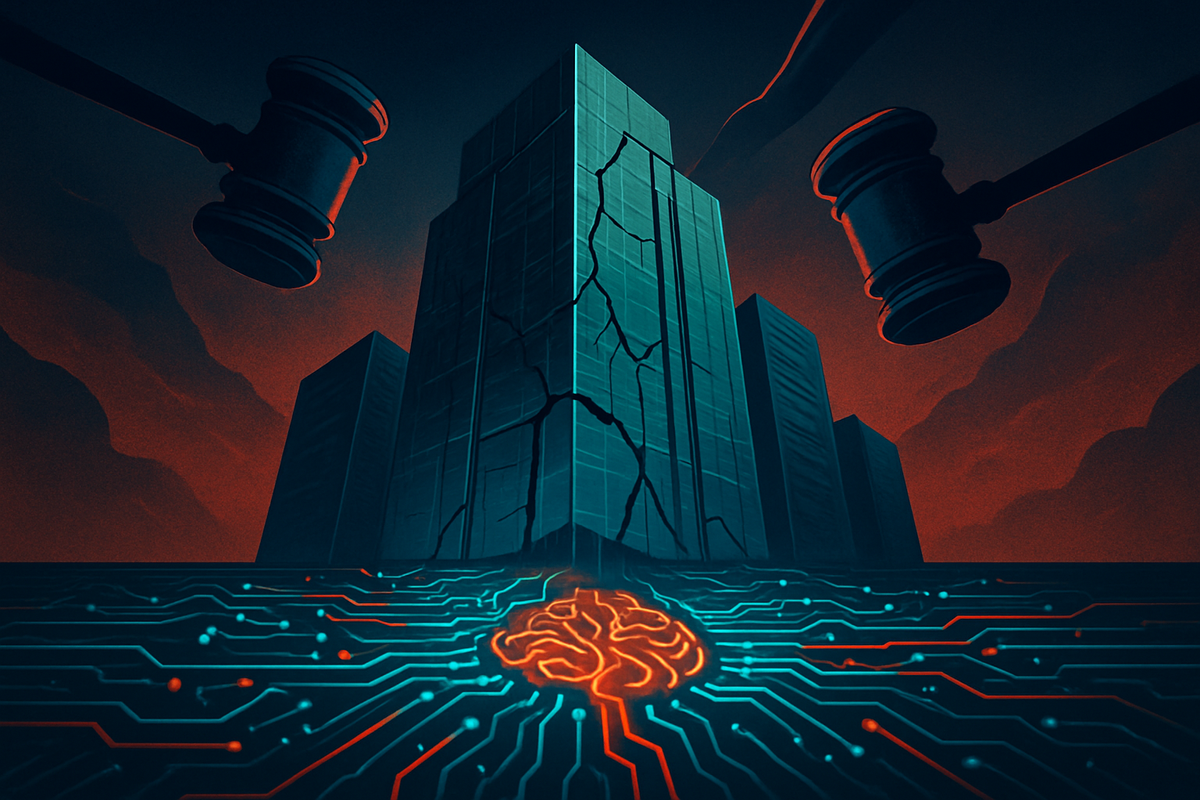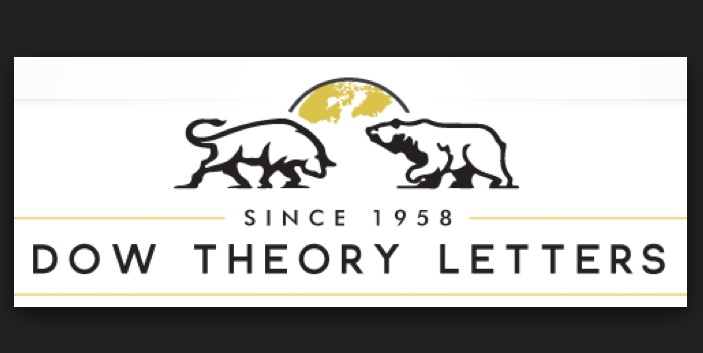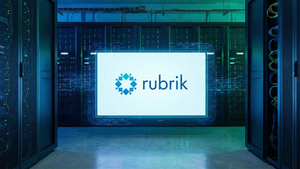
As November 2025 unfolds, the landscape for technology giants is increasingly fraught with challenges. A wave of intensified regulatory scrutiny globally, coupled with ongoing antitrust battles in the United States, continues to cast a long shadow over the sector. These concerns about Big Tech have continued to dog markets, creating a complex environment where the very companies driving innovation are simultaneously facing unprecedented pressure to curb their market dominance and redefine their business practices.
The US market's deep reliance on tech, particularly a concentrated group of mega-cap companies often referred to as the "Magnificent Seven," exacerbates this tension. While these firms have been the primary engine of market gains, their outsized influence introduces systemic risks and raises questions about market health and sustainability. This delicate balance between technological advancement and regulatory oversight is defining the current era, demanding vigilance from investors and policymakers alike as the future of these market titans hangs in the balance.
Unprecedented Scrutiny: A Detailed Look at Big Tech's Legal Battlegrounds
The current climate for Big Tech is characterized by a series of high-stakes legal and regulatory challenges unfolding across multiple fronts. Governments worldwide are actively seeking to rein in the market power and business practices of the industry's most influential players, marking a significant departure from previous eras of relatively unchecked growth.
In the United States, the Department of Justice (DOJ) and the Federal Trade Commission (FTC) have pursued several landmark antitrust cases. Google (NASDAQ: GOOGL), for instance, has faced significant legal setbacks. In August 2024, a judge ruled that the company maintained an illegal monopoly in online search, with remedies, including data-sharing agreements, being finalized in early 2025. This was followed by another federal judge's ruling in April 2025, which found Google guilty of illegally monopolizing the online advertising industry, a decision that could potentially lead to the divestment of key parts of its ad tech business. Meanwhile, Apple (NASDAQ: AAPL) is actively defending against a DOJ lawsuit, filed in March 2024, alleging an illegal monopoly over the premium smartphone market by making it difficult for consumers to switch from iPhones and limiting the functionality of competing products. Meta Platforms (NASDAQ: META), Facebook's parent company, went to trial in April 2025 against an FTC lawsuit, initially filed in 2020, which alleges that Meta illegally maintained a monopoly in "personal social networking" through strategic acquisitions like Instagram and WhatsApp. The FTC is seeking to restructure or divest parts of Meta's business. Amazon (NASDAQ: AMZN) is also embroiled in an FTC lawsuit, filed in September 2023, accusing it of penalizing sellers who offer lower prices elsewhere and coercing them into using its fulfillment services, with a trial slated for February 2027.
Beyond these specific cases, a new area of concern emerging in 2025 is the dominance of these tech giants in the burgeoning artificial intelligence (AI) industry. The "Big 5" – Apple, Microsoft (NASDAQ: MSFT), Amazon, Alphabet (NASDAQ: GOOGL), and Meta – control essential inputs such as skilled labor, vast data pools, and computing power, raising questions about potential anti-competitive practices and barriers to entry for new innovators in the AI space. AI-powered algorithms themselves are also under scrutiny for their potential to facilitate price collusion. This regulatory push is not confined to the US; the European Union's Digital Markets Act (DMA), in effect since 2022, continues to challenge the market power of designated "gatekeeper" platforms. As of November 2025, reports suggest the DMA is yielding tangible benefits for consumers, offering increased choice in areas like default browsers on iOS devices and contactless payment options on iPhones without requiring Apple Pay. However, companies like Apple have vehemently criticized the DMA, arguing it forces "concerning changes" that expose EU users to new security and privacy risks and delay feature rollouts, leading to initial penalties for both Google and Apple in April 2025 for DMA violations.
The immediate market reaction to this sustained pressure has been a mix of volatility and resilience. Early November 2025 witnessed a significant tech sell-off, with the Nasdaq Composite dropping 1.80% and the S&P 500 falling 1.11% on November 4th, largely attributed to profit-taking and concerns about AI stock valuations. This "wobble" underscored the market's sensitivity to perceived hiccups in the AI sector and broader tech valuations. Despite this, markets rebounded quickly on November 5th, with investors viewing the sell-off as a "healthy profit-taking" rather than a signal of deeper economic distress, supported by upbeat earnings and economic data. This resilience, however, is tempered by warnings from Wall Street executives, including leaders from Morgan Stanley (NYSE: MS) and Goldman Sachs (NYSE: GS), about potential overvaluation in tech, particularly AI stocks, suggesting a possible 10-15% market correction could be a healthy valuation reset. The ongoing US government shutdown in November 2025 also adds a layer of uncertainty, delaying crucial economic data and impacting confidence, forcing investors to rely more on private sector indicators.
Winners and Losers in the Shifting Tech Landscape
The intensifying regulatory crackdown and evolving market dynamics are creating a distinct bifurcation within the technology sector, producing clear winners and losers. While the established tech giants grapple with legal challenges and potential structural changes, smaller innovators and infrastructure providers are poised to capitalize on the resulting shifts and the insatiable demand for artificial intelligence capabilities.
The "Magnificent Seven" — particularly Google (NASDAQ: GOOGL), Meta Platforms (NASDAQ: META), Amazon (NASDAQ: AMZN), and Apple (NASDAQ: AAPL) — face the most immediate and significant headwinds. Google, having already been found guilty of maintaining illegal monopolies in online search and advertising, is mandated to share search data with rivals and renegotiate its lucrative default search deal with Apple. These remedies directly threaten its core advertising revenue model by fostering increased competition and potentially fragmenting its ad-tech stack. Meta Platforms (NASDAQ: META) awaits a critical ruling in late 2025 regarding its acquisitions of Instagram and WhatsApp; a loss could force divestiture of these platforms, severely impacting its social media market share and advertising revenue, with Instagram alone projected to account for over half of its ad revenue this year. Amazon (NASDAQ: AMZN) is battling an FTC lawsuit over alleged monopolization of online retail, which could force changes to its third-party seller policies, potentially leading to increased competition and impacting profitability in its core e-commerce segment. Apple (NASDAQ: AAPL) is under fire from the DOJ for allegedly monopolizing the US smartphone market, a lawsuit that could compel it to loosen control over its App Store and ecosystem, thereby reducing its high-margin services revenue and weakening the "lock-in" effect for iPhone users. Even Microsoft (NASDAQ: MSFT) is under FTC inquiry regarding its cloud business, signaling potential future challenges to its Azure dominance. These legal battles not only incur substantial costs but also divert significant resources and management attention away from innovation, potentially hindering their competitive edge and impacting stock performance.
Conversely, the regulatory pressures on these behemoths are opening doors for a new generation of competitors and specialized solution providers. Rivals to Google, such as Microsoft's (NASDAQ: MSFT) Bing, DuckDuckGo, Perplexity, and OpenAI's ChatGPT, stand to gain market share as Google is compelled to share search data and abandon exclusive default search engine contracts. This levels the playing field, particularly in the rapidly evolving AI-driven search market. Similarly, if Amazon is forced to adopt fairer policies, independent sellers and smaller e-commerce platforms could thrive, benefiting from lower fees and a more equitable competitive environment. Developers and competing service providers in Apple's ecosystem, including alternative mobile wallets, messaging apps, and gaming services, could see greater access and foster innovation if Apple's ecosystem is mandated to open up. These shifts promise to inject new dynamism into sectors previously dominated by a few players.
Beyond the direct impact of antitrust actions, the "AI Gold Rush" continues to create immense opportunities for companies providing essential infrastructure and specialized applications. Nvidia (NASDAQ: NVDA) remains the undisputed titan of this era, with its Graphics Processing Units (GPUs) being indispensable for AI infrastructure and development. The company achieved a staggering $5 trillion valuation in November 2025, becoming the first publicly traded company to reach this milestone, driven by sustained demand for its AI-critical hardware. Cloud service providers like Amazon Web Services (AWS), Microsoft Azure, and Google Cloud are experiencing booming demand as companies globally invest massively in AI infrastructure and data centers. Furthermore, semiconductor and component manufacturers such as Advanced Micro Devices (NASDAQ: AMD), Micron Technology (NASDAQ: MU), Western Digital (NASDAQ: WDC), and Arm Holdings (NASDAQ: ARM) are seeing robust demand for their specialized chips, memory, and storage solutions. Arm, for instance, expects its market share in data centers to exceed 50% by 2025. As the market is anticipated to shift from building AI infrastructure to utilizing AI in 2026, companies offering enterprise software and business intelligence tools that integrate AI to improve products and services are also poised for significant growth, attracting value investors looking beyond the initial AI hardware boom.
Wider Implications: A Shifting Paradigm for the Digital Economy
The confluence of regulatory pressures and the market's entrenched reliance on Big Tech signals a profound shift in the broader digital economy, carrying significant ripple effects for competitors, partners, and the very fabric of global policy. This era marks a reckoning with the immense power wielded by these companies, drawing parallels to historical antitrust battles while navigating unprecedented technological advancements.
One of the most defining broader industry trends is the relentless march of Artificial Intelligence (AI). AI is rapidly transitioning from a niche technology to a foundational infrastructure layer, fueling an "AI capex surge" that sees tech giants investing over $1 billion per day in AI-related infrastructure, research, and development. This "arms race" for AI expertise and infrastructure, while driving innovation, also intensifies consolidation, with larger firms acquiring smaller ones for specialized technology. The regulatory environment, particularly in the EU with its Digital Markets Act (DMA), Data Act, and AI Act, is forcing structural changes, compelling "gatekeepers" to open their ecosystems and imposing stringent compliance obligations on AI systems. This global push for AI governance emphasizes transparency, accountability, and ethical use, with international bodies like the OECD and UNESCO defining norms, yet challenges remain in achieving true global alignment.
The ripple effects on competitors and partners are multifaceted. Smaller tech companies and startups face immense pressure, as the "AI compliance taxes" associated with new regulations disproportionately affect those with limited resources, potentially reinforcing the dominance of larger firms. However, for those with innovative solutions, particularly in specialized AI applications or alternative platforms, these regulatory mandates can create new avenues for growth by forcing dominant players to open their ecosystems. Businesses relying on Big Tech platforms, such as app developers and advertisers, are directly impacted; regulations compelling gatekeepers to open their app stores, for instance, can create new opportunities for rival apps and payment software providers. The intense competition among cloud service providers (Amazon Web Services (NASDAQ: AMZN) through AWS, Microsoft (NASDAQ: MSFT) Azure, and Google (NASDAQ: GOOGL) Cloud) to serve the AI buildout also means that hardware providers and other cloud computing rivals are intensifying their AI-focused offerings, leading to both innovation and higher capital expenditures across the industry.
From a regulatory and policy standpoint, the landscape is characterized by both divergence and nascent efforts toward global alignment. The current US administration, as of January 2025, has signaled a commitment to AI growth and general deregulation, aiming to minimize federal restrictions to avoid hindering private sector innovation. This stance contrasts with the EU's stringent regulatory frameworks, leading to concerns about geopolitical fragmentation. US State Attorneys General have even urged American companies to defy EU sustainability regulations, citing potential antitrust probes in the US if they comply with European mandates. However, there is a growing recognition for the need for international cooperation to avoid fragmentation and loopholes in an interconnected world, particularly in defining norms for AI development. This tension between national regulatory approaches and the global nature of technology will be a defining feature of the coming years.
Historically, the current era draws compelling comparisons to past antitrust battles and economic phenomena. The breakups of Standard Oil in the early 20th century and AT&T (NYSE: T) in 1982 serve as major precedents for addressing monopolistic power in critical industries, demonstrating the government's ability to restructure dominant companies to promote competition and innovation. The US-DOJ's investigation into Microsoft (NASDAQ: MSFT) in the 1990s for bundling Internet Explorer with Windows provides a more direct precedent for today's Big Tech challenges regarding platform control and anti-competitive practices, even though it ended in a settlement. Furthermore, the intense market enthusiasm for AI, characterized by significant capital flow into tech stocks and a high concentration of market capitalization in a few dominant firms, evokes comparisons to the dot-com bubble of the late 1990s. While today's leading tech companies generally boast stronger balance sheets and more diverse revenue streams, concerns about overvaluation and the sustainability of speculative growth projections persist, highlighting the potential for rapid market shifts if growth expectations are not met.
What Comes Next: Navigating a Future Defined by AI and Regulation
The trajectory for Big Tech stocks and the broader market in the coming months and years will be defined by an intricate interplay of accelerating AI advancements, persistent regulatory pressures, and evolving geopolitical landscapes. While the sector anticipates continued growth, driven by monumental investments in AI, companies must strategically navigate challenges related to market concentration, cybersecurity, and sustainability to secure their future.
In the short term, Big Tech is poised to continue its aggressive investment in AI infrastructure and development. Analysts project significant growth in IT spending, with data center and software segments experiencing double-digit increases in 2025. Major players like Microsoft (NASDAQ: MSFT), Google (NASDAQ: GOOGL), Amazon (NASDAQ: AMZN), Meta Platforms (NASDAQ: META), and Apple (NASDAQ: AAPL) are collectively pouring billions into AI infrastructure, data centers, and the development of new AI models, with capital spending on AI anticipated to surpass $200 billion by 2026. This investment fuels robust demand for specialized hardware, particularly from semiconductor companies like Nvidia (NASDAQ: NVDA). However, the immediate future also presents volatility. Geopolitical risks are escalating, prompting tech companies to diversify supply chains and manufacturing operations away from restricted regions. The ongoing antitrust litigation against giants like Google, Apple, and Meta will continue to create uncertainty, and any earnings disappointments, especially given high market expectations, could trigger significant stock fluctuations.
Looking further ahead, the long-term outlook for Big Tech remains largely positive, primarily due to the transformative potential of AI. Generative and agentic AI are expected to revolutionize business operations, product development, and customer experiences across nearly all industries. The continued digitization and automation of various aspects of life will drive sustained growth for semiconductor and software makers. However, long-term success hinges on the tech giants' ability to navigate increasing regulatory oversight, ensure ethical AI development, and address pressing environmental concerns related to the immense energy consumption of data centers. Geopolitical fragmentation of technology, driven by competition over AI development and national security concerns, could also transform globalization into a liability, necessitating profound strategic adaptations for multinational corporations.
To thrive in this evolving environment, tech giants are already implementing significant strategic pivots. This includes aggressive AI integration across all products and services, moving beyond simply applying AI to existing processes to fundamentally reinventing business models as "AI-first." Companies are massively investing in custom AI chips to reduce reliance on external suppliers and enhance performance. Supply chain diversification and resilience are paramount to mitigate geopolitical risks. Enhanced cybersecurity measures are also a critical priority, given that the rapid adoption of generative AI introduces new vulnerabilities, with the global cost of cybercrime projected to reach US$10.5 trillion in 2025. Furthermore, addressing sustainability concerns, such as the surge in data center energy consumption, is becoming a strategic imperative, with tech giants exploring solutions like nuclear energy to power their operations. Navigating the complex and often contradictory global regulatory and antitrust landscapes will require continuous engagement with policymakers and a high degree of adaptability in business practices. The ongoing workforce transformation, characterized by restructuring, layoffs in roles susceptible to automation, and reallocation of capital to AI-driven initiatives, will also continue to shape the industry.
Comprehensive Wrap-up: Navigating the New Tech Frontier
The current period in November 2025 marks a critical juncture for Big Tech and the broader financial markets. The key takeaways from this era are undeniable: technology giants are operating under an unprecedented level of global regulatory scrutiny, facing a barrage of antitrust lawsuits and new legislative frameworks designed to curb their immense market power. Simultaneously, the US market's deep reliance on a concentrated group of these tech titans, particularly driven by the "AI Gold Rush," presents both extraordinary opportunities and significant systemic risks. The industry is in a state of dynamic tension, where innovation clashes with regulation, and market dominance is increasingly challenged.
Moving forward, the market will likely remain highly sensitive to developments in both the regulatory arena and the AI sector. While the "Magnificent Seven" continue to drive overall market performance, their individual fortunes will increasingly be shaped by the outcomes of ongoing antitrust cases and their ability to adapt to new compliance requirements. The massive capital expenditures in AI infrastructure by these giants will continue to fuel growth for semiconductor manufacturers, cloud providers, and specialized component makers. However, the enthusiasm for AI also carries the risk of overvaluation, reminiscent of past market bubbles, necessitating careful scrutiny of fundamentals beyond speculative growth projections. The potential for mandated business changes, such as divestitures or forced ecosystem openness, could reshape competitive landscapes and create significant opportunities for smaller, innovative players.
The lasting impact of this period will likely be a more fragmented and regulated tech landscape. The era of unchecked growth for Big Tech is yielding to a new paradigm where ethical AI development, data privacy, and fair competition are paramount. Investors should closely watch the progress of major antitrust trials, particularly those involving Google (NASDAQ: GOOGL), Apple (NASDAQ: AAPL), and Meta Platforms (NASDAQ: META), as their outcomes could trigger significant shifts in business models and market valuations. Furthermore, monitoring the global regulatory environment, especially the implementation of the EU's Digital Markets Act and AI Act, will be crucial for understanding the operational constraints and opportunities facing multinational tech companies. Finally, keeping an eye on the sustainability efforts of data centers and the broader energy consumption of AI will be important, as environmental concerns are increasingly becoming a factor in regulatory and public scrutiny. The ability of tech giants to strategically pivot, diversify their operations, and proactively address these multifaceted challenges will ultimately determine their long-term success and continued influence on the global economy.
This content is intended for informational purposes only and is not financial advice





